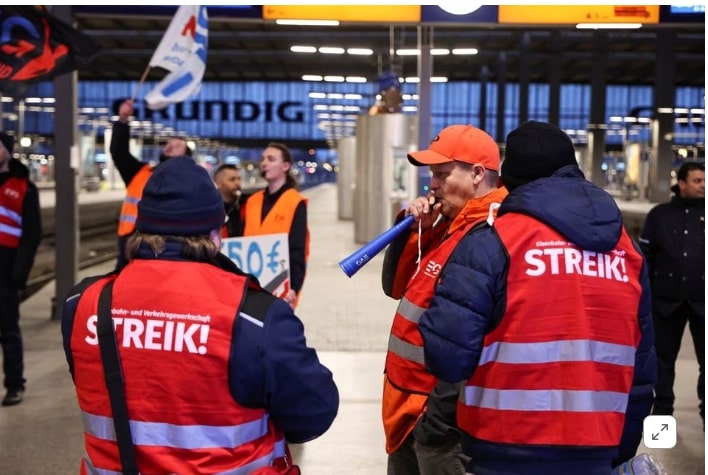
Largest strike in decades brings Germany to a standstill
Airports and bus and train stations across Germany were at a standstill on Monday, causing disruption for millions at the start of the working week during one of the largest walkouts in decades as Europe’s biggest economy reels from inflation.
TAs airports, including two of Germany’s largest, Munich and Frankfurt, suspended flights and Deutsche Bahn (DBN.UL) canceled rail services, most terminals were empty. During demonstrations, striking workers wore yellow or red high-visibility jackets and waved flags, banners, and sirens.
In order to mitigate the effects of inflation, which reached 9.3% in February, employees are pressing for higher wages. Germany, which was heavily reliant on Russia for gas prior to the war in Ukraine, has been particularly hard hit by rising costs as it searches for new energy sources. In recent months, inflation rates have exceeded the average for the euro area.
Industrious expense pressures have pushed national banks to a progression of loan fee increments, however policymakers have said it is too soon to discuss a cost wage winding. Verdi is negotiating on behalf of approximately 2.5 million public sector employees, including those working in airports and public transportation, while EVG is negotiating on behalf of approximately 230,000 Deutsche Bahn and bus company employees.

